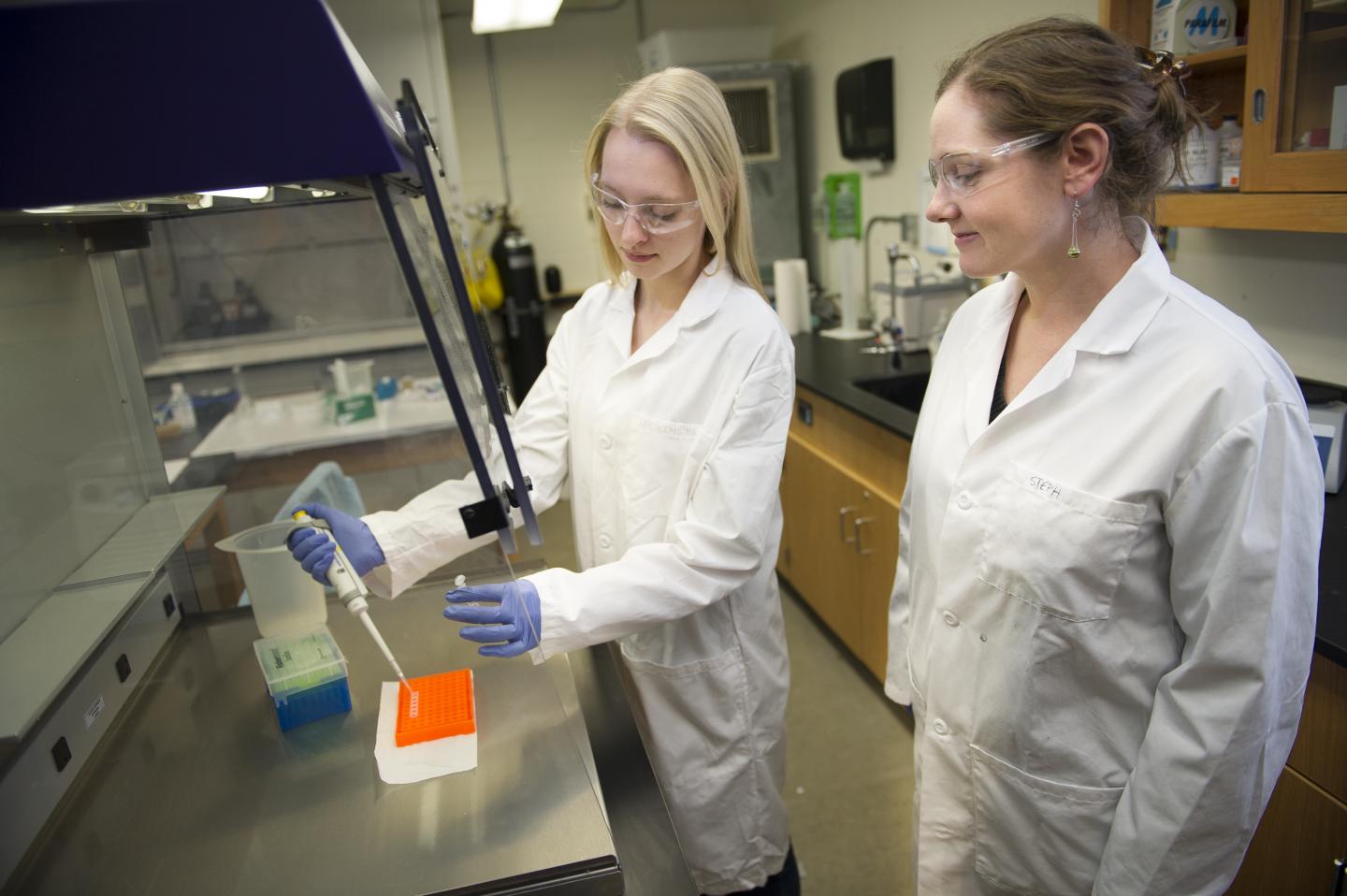
Credit: MSU photo by Kelly Gorham
BOZEMAN — One day, a technician in a small, rural hospital may be able to reliably diagnose breast cancer, Alzheimer’s disease or traumatic brain injury using a tab of paper that would change color like a pH strip dipped in vinegar.
A small sample of blood or other fluid is all that would be needed to trigger the tool’s engineered biochemicals, which would be sensitive enough to detect tiny amounts of protein or DNA associated with illness.
Just as computing was revolutionized with more efficient digital on-off transistors, switch-like biosensors have the potential to transform medical diagnosis and research, according to Montana State University’s Stephanie McCalla.
Designing the biosensors remains a complex challenge, but the end goal “is something that’s cheap and simple, that could be used in any clinic,” said McCalla, assistant professor in the Department of Chemical and Biological Engineering in the Norm Asbjornson College of Engineering.
That goal is one step closer to reality thanks to a $500,000, five-year grant that McCalla won from the National Science Foundation in February. The CAREER grant is considered the premier award given to early-career researchers.
“The potential impacts are huge,” said Jeff Heys, chemical and biological department head. McCalla “is developing a fundamentally new avenue for medical diagnosis.”
In 2017, McCalla won a $280,000 grant from the medical research wing of the U.S. Army to develop a new method of detecting tiny amounts of microRNA, molecules that the body produces when battling certain ailments. Last year MSU licensed the technology to FYR Diagnostics, a biotech company in Missoula.
The CAREER-funded research will build on those successes, she said. “Our first aim is to make more of these chemical systems and broaden the range of molecules we can detect.” For instance, new biochemical switches could be designed to detect the unique proteins that correspond with Alzheimer’s disease.
The biosensors work by creating chain reactions that amplify the chemical signal of specific molecules above specific concentrations, McCalla explained. Competing reactions quiet the chemical signal from similar but non-targeted molecules. Together, the reactions act like a switch, producing a sudden, definite chemical signal when specific proteins or DNA sequences are present.
Such biochemical switches are widespread in nature, including in the human body. For instance, genes turn off and on using a similar process, McCalla said. “I’ve always liked the idea of harnessing the same strategies that cells use.”
While developing the microRNA technology, McCalla’s team was surprised to find a switch-like biochemistry. They had been modifying a technique widely used for isolating and analyzing DNA.
“We found that there’s this whole mechanism that people haven’t really explored yet,” she said.
Scientists had been using the biochemistry as a tool in research but hadn’t deeply understood how it worked. The CAREER grant presents an opportunity to research those fundamentals, which McCalla thinks could have widespread application for medical diagnoses.
Heys called McCalla “an amazing researcher” and “a great mentor for undergraduates and grad students.” McCalla chaired a committee to create the department’s biomedical engineering minor and collaboratively developed a new course called “Principles of Biomedical Engineering.”
###
Media Contact
Stephanie McCalla
[email protected]
Original Source
http://www.




